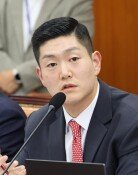Waking up in a republic of coups
Waking up in a republic of coups
Posted May. 17, 2025 07:26,
Updated May. 17, 2025 07:26
“South Korea exports semiconductors and cars to us, but now we are exporting something back to South Korea: martial law and coups.”
This biting remark came from a prominent political figure in a Southeast Asian country plagued by political unrest. The comment was shared with a South Korean business executive during a recent visit. “He was probably joking,” the executive said, “but it left a bitter taste. It showed how South Korea's global image has shifted under martial law.”
It has been 165 days since former President Yoon Suk-yeol declared emergency martial law on December 3. He was unanimously removed from office by the Constitutional Court and is now under investigation for allegedly leading an insurrection. Yet the political aftershocks continue to deepen divisions.
As the presidential election approaches, extreme politics sparked by the declaration of martial law has become entrenched. The two major parties are engaging in increasingly extralegal measures that cross the boundaries of the Constitution and the law, while branding each other every day as 'coup forces.'
On May 15, the Democratic Party condemned the People Power Party (PPP) for briefly appointing former Defense Minister Chung Ho-yong, who was convicted for leading the violent crackdown on the 1980 Gwangju pro-democracy movement, as a senior advisor. “Is PPP candidate Kim Moon-soo planning another coup?” the party asked. A day earlier, the PPP had slammed the Democratic Party’s move to investigate Chief Justice Cho Hee-dae over alleged election interference as a “parliamentary coup.” On the same day, the Democratic Party accused Cho of staging a “judicial coup” and demanded his resignation.
Finger-pointing over “coup forces” has even erupted within the PPP itself. As the party’s internal feud over replacing its presidential candidate escalated, terms like “palace coup,” “midnight political coup,” and “a coup by remnants of the last coup” were thrown around.
Even if such language is partly rhetorical, it makes future dialogue and compromise almost impossible. Politics cannot be considered normal when, multiple times a day, politicians accuse both their rivals and dissenting allies of being 'coup forces.'
As coup rhetoric becomes normalized, so too do extreme political maneuvers. This month alone, former Prime Minister Han Duck-soo resigned as acting president and launched a bid for the presidency, triggering an unprecedented “successor-of-a-successor” transition. The Democratic Party pushed for the nation’s first-ever impeachment of a sitting chief justice. The PPP attempted, and failed, to forcibly replace its presidential candidate. These extraordinary events are piling up with no clear precedent.
In the U.S. Congress, breaking long-standing bipartisan norms is sometimes called the “nuclear option.” The term underscores how extreme measures, like lowering the filibuster threshold, carry grave institutional risks and can lead to mutual destruction.
The next administration, born from an early election triggered by martial law and impeachment, will have no greater task than restoring democratic norms. Democratic Party candidate Lee Jae-myung said on the 15th, “Let us begin respecting and acknowledging each other. Let politics move in that direction.” PPP candidate Kim Moon-soo said, “Democracy is built on dialogue, compromise, and patience.” Innovation Party candidate Lee Jun-seok declared, “I am running to restore democracy, not to claim power.”
Seventeen days remain until the election. Let us hope the national conversation shifts away from coups and toward unity and recovery.





![“잠만 자면 입이 바싹바싹”…잠들기 전에 이것 체크해야 [알쓸톡]](https://dimg.donga.com/c/138/175/90/1/wps/NEWS/IMAGE/2026/02/23/133404747.3.jpg)

